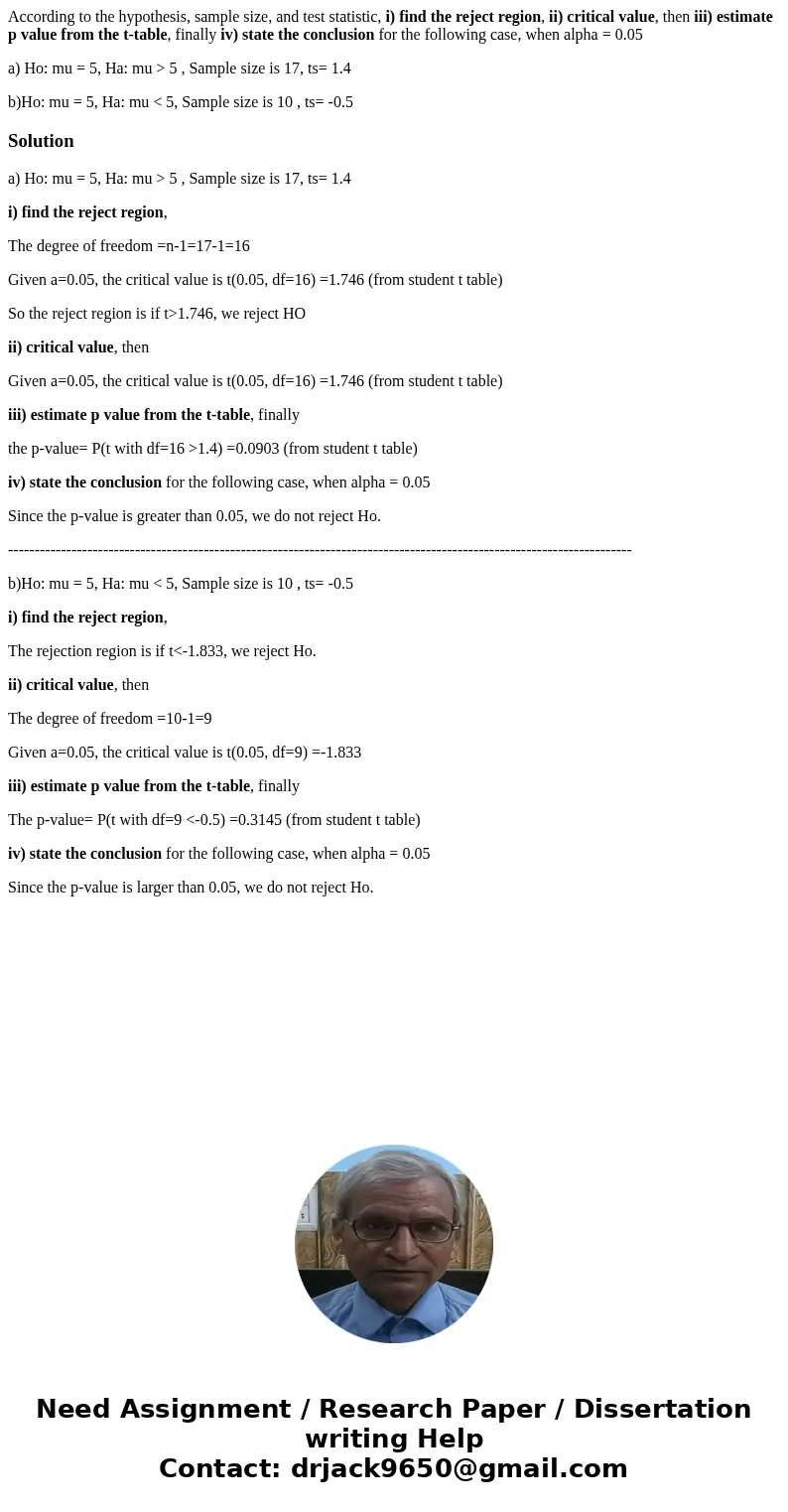According to the hypothesis sample size and test statistic i
According to the hypothesis, sample size, and test statistic, i) find the reject region, ii) critical value, then iii) estimate p value from the t-table, finally iv) state the conclusion for the following case, when alpha = 0.05
a) Ho: mu = 5, Ha: mu > 5 , Sample size is 17, ts= 1.4
b)Ho: mu = 5, Ha: mu < 5, Sample size is 10 , ts= -0.5
Solution
a) Ho: mu = 5, Ha: mu > 5 , Sample size is 17, ts= 1.4
i) find the reject region,
The degree of freedom =n-1=17-1=16
Given a=0.05, the critical value is t(0.05, df=16) =1.746 (from student t table)
So the reject region is if t>1.746, we reject HO
ii) critical value, then
Given a=0.05, the critical value is t(0.05, df=16) =1.746 (from student t table)
iii) estimate p value from the t-table, finally
the p-value= P(t with df=16 >1.4) =0.0903 (from student t table)
iv) state the conclusion for the following case, when alpha = 0.05
Since the p-value is greater than 0.05, we do not reject Ho.
----------------------------------------------------------------------------------------------------------------------
b)Ho: mu = 5, Ha: mu < 5, Sample size is 10 , ts= -0.5
i) find the reject region,
The rejection region is if t<-1.833, we reject Ho.
ii) critical value, then
The degree of freedom =10-1=9
Given a=0.05, the critical value is t(0.05, df=9) =-1.833
iii) estimate p value from the t-table, finally
The p-value= P(t with df=9 <-0.5) =0.3145 (from student t table)
iv) state the conclusion for the following case, when alpha = 0.05
Since the p-value is larger than 0.05, we do not reject Ho.

 Homework Sourse
Homework Sourse